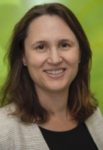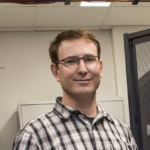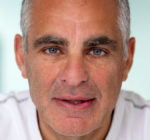
In this monthly feature, we’ll keep you up-to-date on the latest career developments for individuals in the high-performance computing community. Whether it’s a promotion, new company hire, or even an accolade, we’ve got the details. Check in each month for an updated list and you may even come across someone you know, or better yet, yourself!
NTT Research, Inc. named Joe Alexander as distinguished scientist in its Medical and Health Informatics Lab. Alexander joined NTT Research in February 2020. He is also a Fellow of the American College of Cardiology. Before NTT Research, Alexander spent 18 years at Pfizer serving as senior medical director of global medical affairs. At NTT Research, he will lead the MEI Lab’s bio digital twin initiative.
“This is a tremendous opportunity to expand many of my interests and areas of expertise, including my long-standing work in medical data analysis and knowledge of cardiovascular dynamics,” Alexander said. “I am especially thrilled at having a five-to-ten year research horizon and look forward to leading the bio digital twin initiative, which I believe will evolve in three stages: first, an initial cardiovascular model focused on acute care; next, a more sophisticated dynamic model incorporating multiple systems and more suited for chronic care; and finally, a third-generation model associated with wellness in general.”
The Energy Sciences Network announced the addition of Todd Anderson as its director of Systems and Software Engineering. Anderson was hired and onboarded virtually, a first for ESnet. At ESnet, he will manage his team remotely from Lafayette, Calif., for the first few months. He will apply his background experience to manage the teams that create the tools that enable scientific users to enhance their network use.
“It’s really exciting to hear about the science projects I will be supporting as a member of the ESnet staff,” said Anderson. “And ESnet is doing its own networking research, too. It’s cool to be on a conference call and hear people talking about quantum networking and 5G.”
The U.S. Department of Energy’s Exascale Computing Project tapped Katie Antypas as its new director for the project’s Hardware and Integration Focus Area. Antypas has accumulated more than 14 years of experience during her time at Lawrence Berkeley National Laboratory and is a speaker and presenter throughout the HPC community.
Antypas is the division deputy and data department head at the National Energy Research Scientific Computing Center at Berkeley Lab, where she is responsible for managing the Data Science Engagement, Data and Analytics Services, Storage Systems, and Infrastructure Services groups. Before NERSC, Antypas worked at the NNSA-ASC Flash Center at the University of Chicago, on the FLASH code.
 Mordechai Ben-Ari, Michael Ley, and Arati Dixit
Mordechai Ben-Ari, Michael Ley, and Arati Dixit
The Association for Computing Machinery recognized Mordechai (Moti) Ben-Ari, Michael Ley, and Arati M. Dixit for their notable service to the computing field. Ben-Ari was awarded the Karl V. Karlstrom Outstanding Educator Award for his textbooks, software tools, and research on learning concurrent programming, program visualization, logic, and programming languages. His work spans four decades, focusing on novices and advanced students in various subfields of computing.
Ley was awarded the ACM Distinguished Service Award for developing and curating DBLP. At Schloss Dagstuhl − Leibniz Center for Informatics, Ley organized a DBLP team in the past decade. Through DBLP, Ley is credited with making published computer science research accessible and useful to the community. Dixit, a senior scientist at Applied Research Associates, Inc. and a teaching associate professor in the ECE department at North Carolina State University, was awarded the Outstanding Contribution to ACM Award for contributing to the development and diversity of ACM programs in India, especially ACM-W India.
Qumulo appointed Craig Bumpus to the newly created role of chief revenue officer. Bumpus will oversee the fast-tracking of Qumulo’s revenue growth, drive adoption of Qumulo’s solutions, and expand to service customers in the Americas, EMEA, and Asia. Before Qumulo, he was CRO at UiPath and is credited with growing the annual recurring revenue by an 812-percent increase during a two-year period.
“Qumulo’s cloud and file software are unparalleled in its ability to support a wide variety of applications, to scale massively and to provide fast, data-driven insights to accelerate innovation and business outcomes,” Bumpus said. “I see tremendous opportunity to grow and expand the business as organizations around the world look to leverage file services in the cloud and the data center.”
Stuart Folo joins RStor as vice president of Asia Pacific to lead the new sales office in Tokyo, Japan. Folo has over a 20-year career in fixed and wireless networks, messaging security and infrastructure. Before RStor, he was vice president of sales at ImageWare Systems, Proofpoint, and Cloudmark.
“RStor is helping to transform the way global organizations manage and store their data,” Folo said. “At a time when IT teams are migrating between clouds, RStor provides the scale, security, and reliability they need. I look forward to working with current and future customers in this unique market.”
John Gunnels joined Amazon Web Services as principal engineer. Gunnels comes from IBM Research, where he held the role of distinguished research staff member, manager, senior manager, and program director of the Quantum Software and Applications division in the Quantum Theory, Software, and Applications unit. He has an 18-year career in research and development in the hardware and software areas.
Gunnels, who started at IBM in 2001, was managing a research team that was working on data-centric computing architectures, programming models, workflows, and applications. He has held multiple leadership positions at IBM for over 10 years and has divided his focus on employing and advancing large-scale systems and deploying supercomputing systems.
John Josephakis joins Nvidia as the company’s global vice president of sales and business development for the HPC/Supercomputing division. He comes from Cray (acquired by Hewlett Packard Enterprise), where he was VP of worldwide sales. Prior to joining Cray in 2013, he spent over 10 years at DataDirect Networks holding several positions.
“After spending over 20 years in the industry, I am extremely excited to join NVIDIA at this time,” Josephakis stated on a LinkedIn post. “With huge investments in R&D, NVIDIA has been a leader in the technology transformation we are witnessing. I am confident that with our technology, NVIDIA will make a big difference in helping solve some of the grand challenges our world is facing, and I am thrilled to be part of that.”
 Gabriele Kotsis, Joan Feigenbaum, Elisa Bertino
Gabriele Kotsis, Joan Feigenbaum, Elisa Bertino
The Association for Computing Machinery elected Gabriele Kotsis, Joan Feigenbaum, and Elisa Bertino to leadership positions for a two-year term starting July 1. Kotsis was elected as president. She is a professor and head of the Department of Telecooperation at Johannes Kepler University.
Feigenbaum was elected vice president. She is a Grace Murray Hopper Professor of Computer Science at Yale University. Lastly, Bertino was elected as secretary/treasurer of ACM. She is a Samuel Conte Professor of Computer Science at Purdue University.
Gregory Kurtzer, creator of open source projects Centos Linux, Warewulf and Singularity, has formed and is the CEO of a new company called Control Command, Inc. Currently in stealth mode, the startup is focused on “build[ing] the next generation of secure High Performance Computing infrastructure for compute centers, enterprise, hyper-scale, cloud, and edge,” according to Kurtzer’s LinkedIn profile.
Kurtzer was most recently the CEO of Sylabs, which was founded to provide support and other capabilities for running the Singularity container system on HPC and high security infrastructures. RStor, a major investor in Sylabs, recently acquired the company. Kurtzer created Singularity while at Lawrence Berkeley National Lab, where he held a position from 2000 to 2016. He was a corporate advisor for RStor from 2017 to April 2020.
The Open Compute Project Foundation announced that Google is now an executive member and will hold a seat on its board of directors. Parthasarathy (Partha) Ranganathan was selected as the director. Ranganathan is a distinguished engineer at Google. Before Google, he was an HP Fellow and chief technologist at Hewlett Packard Labs.
“Open standards for system and hardware design are essential to meet modern compute requirements,” Ranganathan said. “We look forward to extending our involvement with the OCP community to help drive greater choice and agility for the industry.”
Kalray appointed Louis Tannyeres as executive vice president of Engineering. Tannyeres has over a 35-year career holding executive positions in semiconductor companies and in designing advanced semiconductor solutions. As EVP, Tannyeres will manage hardware design and test, board design, engineering and industrialization teams. He will focus on the design of Coolidge, Kalray’s third generation MPPA processor, to support the data center and automotive markets.
“I have been following Kalray’s evolution for quite some time and have been impressed by the innovative architecture and unique capabilities of Coolidge to power new intelligent systems,” Tannyeres said. “I am very excited to join Kalray and eager to contribute to the company’s growth and success.”
The Open Compute Project Foundation appointed Kushagra Vaid to represent Microsoft on the board of directors. Vaid succeeds Mike Neil and, since 2014, has been actively involved with OCP. Vaid is general manager and distinguished engineer in Microsoft’s Azure division. His responsibilities include the architecture and design for cloud hardware infrastructure hosting Azure’s services.
Before Microsoft, Kushagra held the role of principal engineer at Intel, where he was responsible for the company’s Enterprise and Cloud CPU/Platform’s technology strategy, architecture, and design. He has published over 25 research papers and holds over 30 patents in computer architecture and systems design.
 Computing Community Consortium Members
Computing Community Consortium Members
Six new members were appointed to the Computing Community Consortium by the Computing Research Association in consultation with the National Science Foundation. Kathleen Fisher from Tufts University, William D. Gropp from the University of Illinois Urbana-Champaign, Brian LaMacchia from Microsoft Research, Melanie Moses from the University of New Mexico, Helen Nissenbaum from Cornell Tech, and Holly Yanco from UMass Lowell were appointed to the CCC Council, effective in July.
CCC Council members serve three-year staggered terms. They are comprised of 20 members with experience in various areas of computing. The CCC and CRA thanked the parting council members whose terms end on June 30. For the full list of all the new members, click here.
 2020 Ethernet Alliance Officers and Board of Directors
2020 Ethernet Alliance Officers and Board of Directors
The Ethernet Alliance announced the 2020 officers and board of directors for 2020. The following members were elected: Peter Jones, Cisco Systems, Inc., chairman and board of directors; Greg McSorley, Amphenol Corp., president and board of directors; Jeffery Maki, Juniper Networks, Inc., treasurer and board of directors; Nathan Tracy, TE Connectivity, secretary and board of directors; Craig Carlson, Marvell, board of directors; David Chalupsky, Intel Corp., board of directors; Pete Del Vecchio, Broadcom Corp., board of directors; and Dave Estes, Spirent, board of directors.
The Ethernet Alliance is a global consortium, including system and component vendors, industry, academia, and government professionals committed to the success and growth of Ethernet technology. For the additional list of members selected, click here.
To read last month’s edition of Career Notes, click here.
Do you know someone that should be included in next month’s list? If so, send us an email at [email protected]. We look forward to hearing from you.














